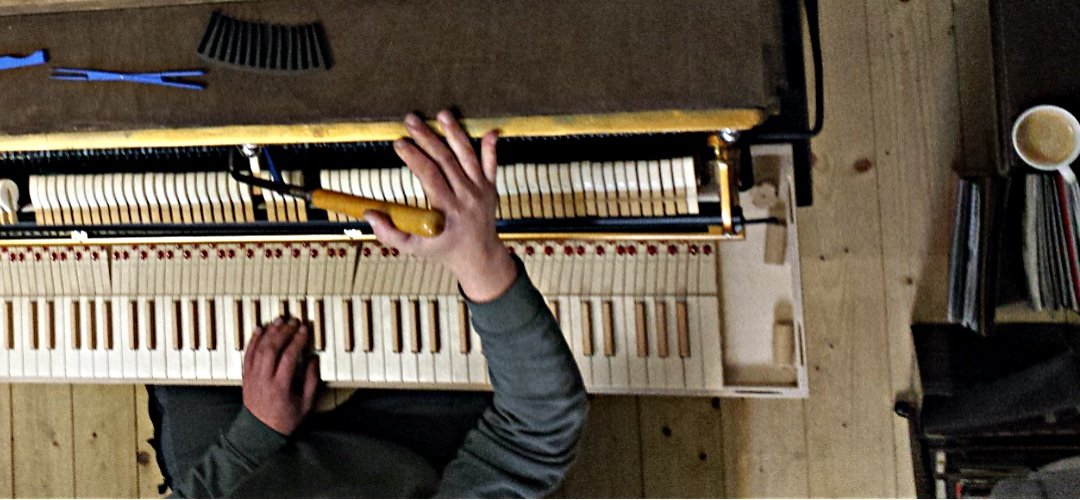Regular tuning of the piano is necessary to maintain a good sound image, but also to preserve the substance. Whether the sound is pleasing is a matter for the ear. If a piano is not tuned for a long time, the tuning pitch will gradually decrease - and in the worst case will later be restored only conditionally or not at all without consequential damage. So even unused pianos should be tuned regularly (every 1-2 years). For regularly used pianos, we recommend 1-2 tunings per year, usually during the heating changes in spring and late autumn.
concert pitch
Modern pianos are usually tuned to chamber pitch or higher. Older and historical pianos had different tuning pitches - and often do not allow the original pitch due to aging. A local expert should determine which pitch is appropriate for tuning your instrument. Please also read our blog post 'What is the concert pitch? ‚.
Mood after transport
Changes in location and transport usually cause changes in mood. Even if the piano has been professionally transported (transport cover, air-conditioned, shock-protected, etc), it is recommended to let the piano acclimatize at least 2-4 weeks after transport. Then it will be more stable and the tuning will hold better. If the room climate changes significantly between the previous place of installation and the new one, you may have to reckon with several tunings in the first year.
How much does a piano tuning cost?
According to our experience in Germany a piano tuning costs between 90,00 and 150,00 Euro, depending on the condition of the piano and also on the tuning technique. We estimate the tuning by ear, because in our experience the result is much better adapted to the instrument. It is helpful to have an experienced piano tuner recommended by acquaintances or friends or piano teachers. Depending on playing ability and hearing, there are different demands on the piano tuning.
Tuning old pianos
As in all crafts, not all piano tuners are able to realize fine differentiations and produce stable tunings. If you have an older piano, it is recommended to choose a piano tuner with affinity and knowledge of older instruments. Some piano houses are - even if rarely - less enthusiastic about such antique instruments - which unfortunately can result in higher tuning costs or high renovation costs. Many piano tuners are listed on the pages of the Bund Deutscher Klavierbauer http://www.bdk-piano.de.
Mood swings?
If the substance of the piano no longer permits good tuning, it is advisable to decide whether renovation (possibly replacing the soundpost and tuning nails, etc.) is economically worthwhile. Please also read our offer for piano evaluation or piano renovation.
A piano tuner usually adjusts a piano to a smaller extent at the same time as tuning and charges for this on an hourly basis. This involves adjusting the touch, damping, pedal system, etc. so that you can continue to enjoy your piano.
Maintenance every 3-5 years
Every 3-5 years or so, an instrument that is used normally should be thoroughly serviced in order to restore the joy of playing. A piano has thousands of individual parts, most of them in the action. Parts subject to wear and tear must be regularly adjusted or replaced according to the degree of wear and tear and the quality / degree of maintenance. Hammers and dampers must be reworked - and minor repairs made. A more extensive overhaul / renovation of the piano is necessary if you are no longer satisfied with the sound / playing experience despite regular maintenance.


